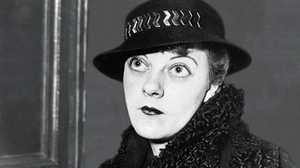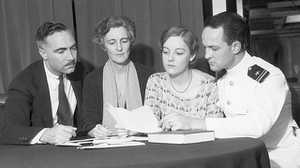Navy Life in Territorial Hawai'i
When Navy personnel received assignments to Hawai'i in the 1930s, they celebrated. The glamour and allure of life in the Islands was drawing increasing numbers of tourists, but for most Americans, the territory remained a far-off, mysterious place. Though the Islands were an important strategic outpost for the U.S. government, people serving on military tours in Hawai'i enjoyed a relatively relaxed and blissful lifestyle.
Comfortable Life
The Great Depression was well underway, but in Honolulu, even the ensigns -- commissioned officers of the lowest rank -- were paid enough to live comfortably in the tropical paradise. Officers rented homes in the Manoa Valley, away from both the working class neighborhoods of Palama and Iwilei, and from the bachelors and lower-ranked enlisted men.

Navy Society
The Navy had always been the most class-conscious branch of the military, and the social hierarchy in Hawai'i was no different. The younger officers and enlisted men did not frequent the Royal Hawaiian Inn, where a jacket was required. Nor did they frequent Waikiki Park, where civilians often danced to the music of live bands. Unofficial segregation by rank and age became the norm, and the all-white Navy night at the Ala Wai Inn, while not formally regulated, was carefully observed. On Saturday nights, the Ala Wai Inn filled with parties of officers and their wives reserving the tea-house-style rooms for tables of six or eight. Dinner was served between 7 and 9 for about $1.50, and when the dancing started, drinks were advertised as costing 50 cents. Navy bachelors and married couples crowded the dance floor as big band music resonated through the inn.
Party Lifestyle
Though the 18th Amendment had been in effect since 1919, the Ala Wai Inn was known to sell okolehao, a popular Hawaiian liquor of the era. Officers and their wives often entertained in their Manoa Valley rentals, where hosts would serve their personal stashes of okolehao with a mixer like ginger ale before heading down to the Inn on Kalakaua Avenue. House parties after the band stopped playing at midnight were common, extending into the early morning hours. Navy officers on shore leave enjoyed a busy round of social engagements and Saturday night parties, and the Navy lifestyle invited heavy drinking.
Sports Spectacles
Boxing exhibitions also drew a large Navy audience, though women were discouraged from attending. Until 1929, boxing in Hawai'i was only legal if sponsored by the military. Thus, local boxers were often pitted against members of the Navy's boxing team, and matches took place in a ring set up at the Schofield Barracks until 1924, when Pearl Harbor was closed to civilians. After the base closed, matches moved to the Honolulu Armory and were supported by the Hawaiian National Guard. After 1929, boxing became legal throughout the territory and remained extremely popular.
Bridge and Prostitutes
Navy wives, more or less banned from the vulgar boxing matches, spent their time taking hula classes together, sunning on the pristine beaches, or gossiping over long bridge games. The life of a Navy wife could be lonely, and the wives banded together while their husbands spent days at a time on sea duty. Life as a Navy bachelor could also be lonely, and the red light district in Iwilei saw its share of Navy men seeking Hawaiian or Oriental prostitutes.
Insular Life
Hawai'i was far from home, but generally considered one of the most agreeable assignments the Navy offered. In 1930, President herbert Hoover promised Depression-weary Americans, "Prosperity is just around the corner." In Navy life in Hawai'i, the illusion of prosperity had never left.







